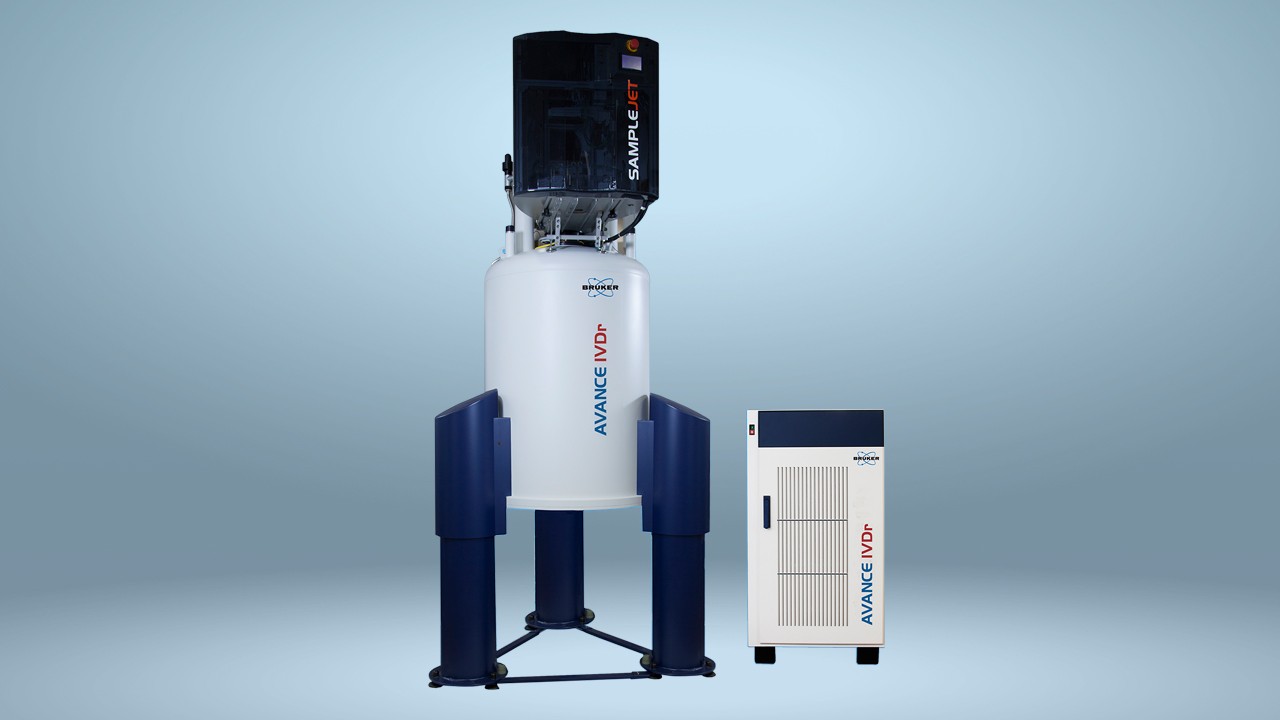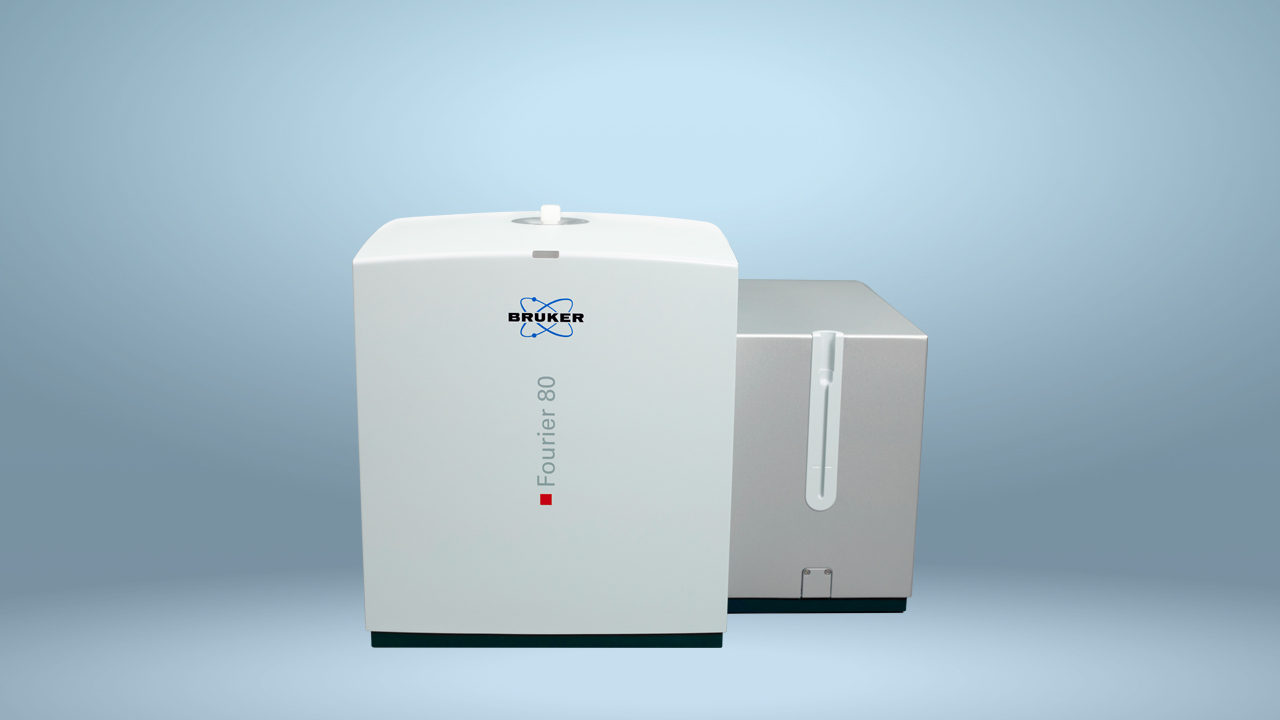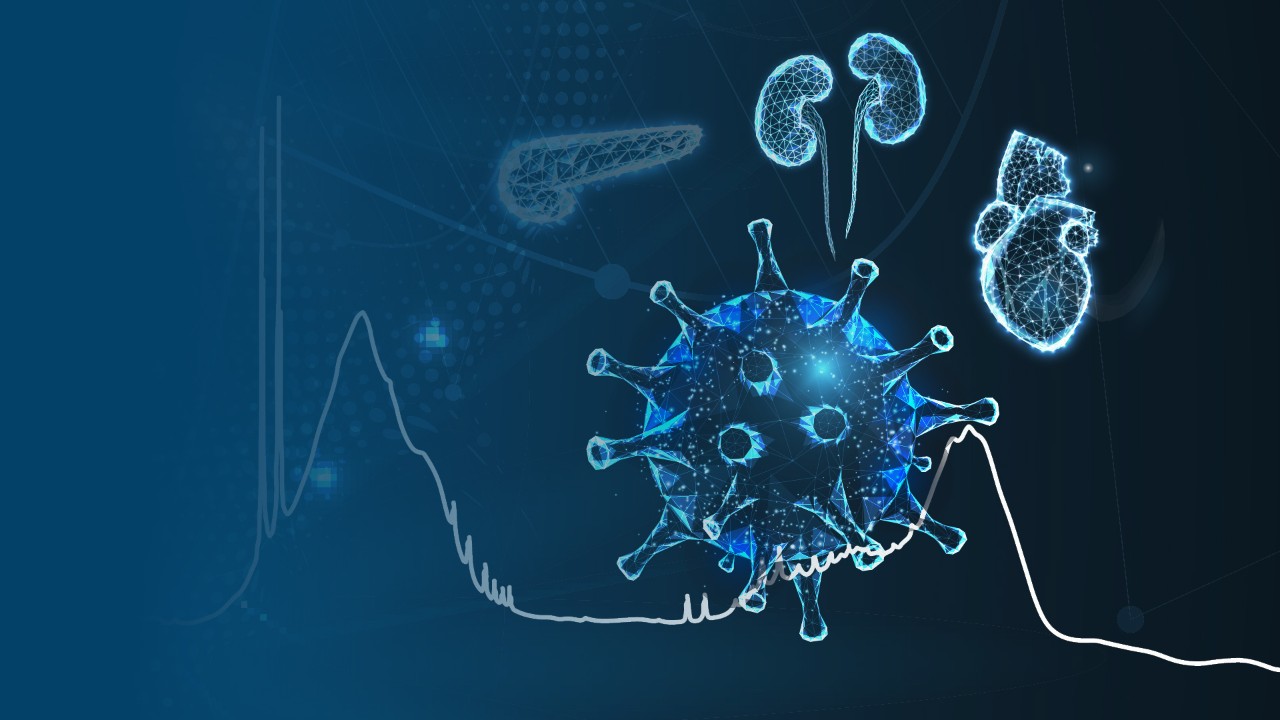Benchtop FT-NMR Applied to SARS-CoV-2 and ‘Long COVID’ Research Lowers the Barrier to Clinical Translation
ETTLINGEN, Germany and PERTH, Western Australia– September 15, 2022: Researchers at the Australian National Phenome Centre (ANPC) at Murdoch University have successfully detected and quantified newly discovered biomarkers of SARS-CoV-2 acute infections and of ‘Long COVID’ using a benchtop Fourier Transform nuclear magnetic resonance (FT-NMR) spectrometer with a permanent magnet, thereby lowering the barrier to clinical translation of this epidemiological and diagnostic research technology. Under the direction of Professor Jeremy Nicholson, the research found that the unique signatures and quantification of the inflammatory biomarkers developed on a 600 MHz Bruker Avance IVDr NMR system could be reproduced on the 80 MHz Bruker Fourier 80 Benchtop FT-NMR spectrometer.1
Combining benchtop NMR with high-field NMR enables clinical translation to extend the reach of this powerful technology to suit the differing clinical and research market needs.
The ANPC-Bruker collaboration used a sophisticated J-edited diffusional (JEDI) NMR experiment on the Fourier 80 to obtain quantitative signatures of two biomarker signals from N-acetylated glycoprotein (Glyc) and a novel supramolecular phospholipid composite (SPC) from phospholipids in lipoproteins, enhanced by a combination of relaxation, diffusion and J-editing properties of the JEDI experiment that attenuate contributions from other molecular species in plasma. This JEDI experiment also demonstrates excellent discrimination of COVID-19 from control patients
The novel Glyc/SPC ratio measurement has emerged as a useful molecular biomarker of inflammation in Long COVID, which could significantly improve current clinical and therapeutic understanding of the acute disease and of Long COVID.
Following the recent launch of the Bruker PhenoRisk PACS™ RUO2 module on its Avance IVDr 600 MHz NMR system – for molecular phenomics research on ‘Long COVID’ patient blood samples – this latest test further demonstrates that the metholology can be reliably transferred to a compact benchtop FT-NMR system, as JEDI overcomes the issue of reduced dispersion and enhanced signal overlap typically associated with a lower field spectrometer.The simplified sample preparation developed for benchtop applications also supports data acquisition in a similar timeframe to high speed instruments, and further experiments suggest the potential of quantification of the SPC/Glyc ratio in just minutes.
Prof. Jeremy Nicholson, Director of the ANPC, commented: “Our major goal is to detect new disease signatures and translate them into the clinic. This involves developing innovative new technologies that will immediately benefit human health, whilst laying a platform for future scientific discoveries. Quickly and efficiently testing for informative biomarkers in large numbers of human blood samples with easy-to-use instruments is a major milestone, proving that NMR analysis could begin to play an important role in patient care. In the case of Long Covid we need to measure, monitor and mitigate the disease process, and benchtop technologies will be an important part of delivering that translational mission at the population level. We believe these findings will facilitate work in samples from patients with SARS-CoV-2 acute infection and Long COVID using benchtop devices, and we look forward to continuing our strategic partnership with Bruker into other disease areas.”
Dr. Iris Mangelschots, Division President of Bruker BioSpin’s AIC, added: “This is a powerful example of how NMR spectroscopy can help in the development of new epidemiological and clinical research methods. NMR can play a pivotal role in measuring COVID-19 progression quantitatively based on phenomic molecular signatures, and it may therefore be beneficial in the development of Long COVID clinical management and treatment options. The potential of translating biomarker quantification from the high field Avance IVDr to the benchtop Fourier 80 extends the reach of NMR to laboratories that do not have the high-field NMR infrastructure. This new lab topology can bring the benefits of this solution to a broader medical research community.”
The compact, high-performance Bruker Fourier 80 Benchtop FT-NMR features a novel, ultra-stable 80MHz permanent magnet and operates using a standard electrical power. With no need for cryogens or specialized lab infrastructure, installation or operator training, the Fourier 80 delivers the power of FT-NMR in a push-button instrument, paving the way for routine targeted NMR biomarker research in any lab.
Bruker NMR Instruments are for research Use Only. Not for Use in Clinical Diagnostic Procedures
About the ANPC
The Australian National Phenome Centre (ANPC), led by Murdoch University, will transform how long and how well people live, not just in Australia, but around the world. The work of the ANPC supports almost every area of bioscience. It reaches across traditional research silos and fosters a new, more collaborative approach to science. Long-term, the ANPC hopes to build ‘global atlases’ of human disease, providing insights into future health risks which everyone on the planet can benefit from. The only facility of its kind in the southern hemisphere, it is linked to the International Phenome Centre Network and also has wide applications in agriculture and environmental science. The ANPC positions Perth and WA as a global leader in precision medicine, and enables quantum leaps in predicting, diagnosing and managing human disease. It is part of the Health Futures Institute at Murdoch University. For more information, please visit: https://australian-npc.org
About Bruker Corporation
Bruker is enabling scientists to make breakthrough discoveries and develop new applications that improve the quality of human life. Bruker’s high performance scientific instruments and high value analytical and diagnostic solutions enable scientists to explore life and materials at molecular, cellular and microscopic levels. In close cooperation with our customers, Bruker is enabling innovation, improved productivity and customer success in life science molecular and cell biology research, in applied and pharma applications, in microscopy and nanoanalysis, as well as in industrial applications. Bruker offers differentiated, high-value life science and diagnostics systems and solutions in preclinical imaging, clinical phenomics research, proteomics and multiomics, spatial and single-cell biology, functional structural and condensate biology, as well as in clinical microbiology and molecular diagnostics. For more information, please visit: www.bruker.com.
Customer Contact
Claire Cannet
Market Manager Clinical RTD
Bruker BioSpin
+49 7243 769 5981
claire.cannet@bruker.com
Media Contact
Thorsten Thiel, Ph. D.
VP of Group Marketing
Bruker BioSpin
+49 7243 769 5517
pr@bruker.com
Reference
- Philipp Nitschke, Samantha Lodge, Drew Hall, Hartmut Schaefer, Manfred Spraul, Nieves Embade, Oscar Millet, Elaine Holmes, Julien Wist, and Jeremy K. Nicholson: Direct Low Field J-edited diffusional proton NMR spectroscopic measurement of COVID-19 inflammatory biomarkers in human serum. The Analyst, Royal Society of Chemistry, accepted 15 August 2022. DOI: 10.1039/d2an01097f.
- Research Use Only


